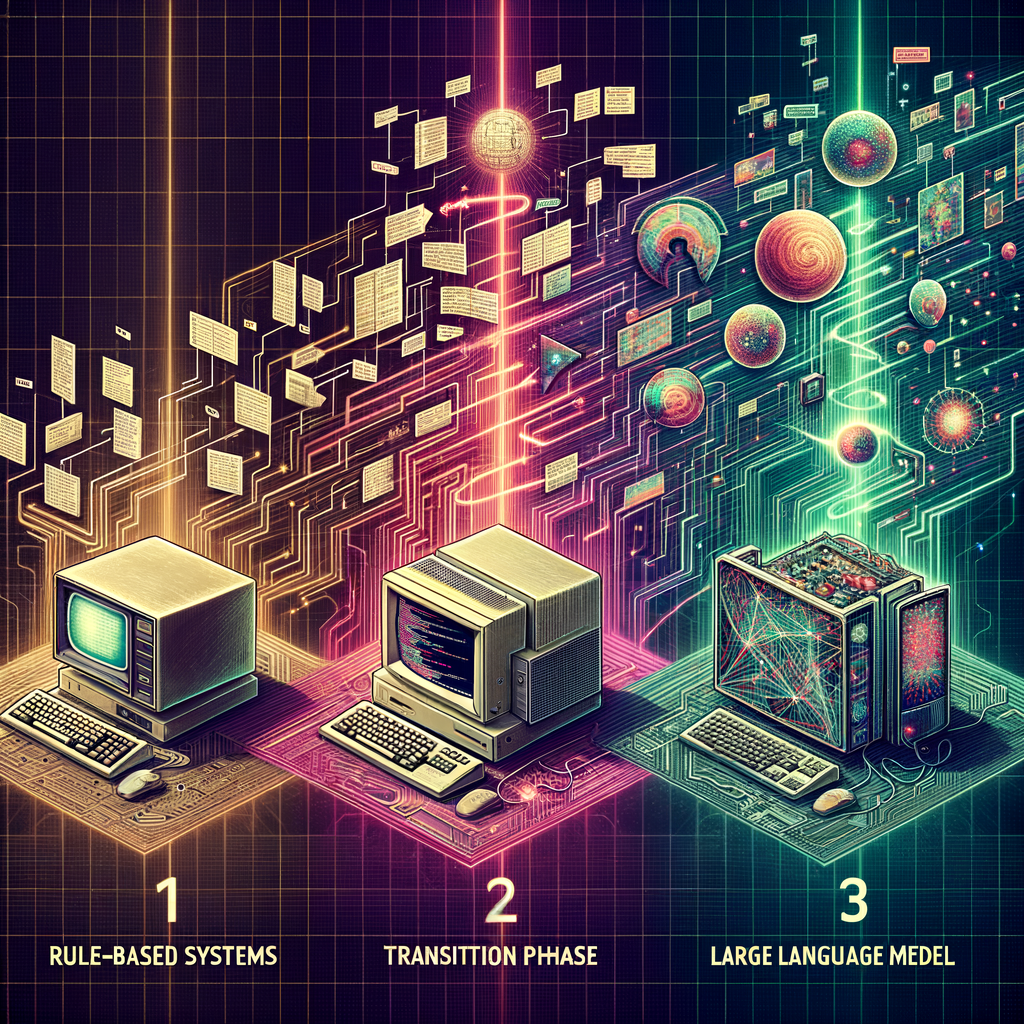The landscape of software development is undergoing a radical transformation, driven by the remarkable evolution of AI code generation technologies! From rigid, rule-based systems to sophisticated large language models (LLMs), we’re witnessing an unprecedented shift in how developers create, optimize, and maintain code. Imagine a world where complex programming challenges can be solved with intelligent, context-aware AI assistants – that future is now!
In fact, recent studies suggest that AI-powered code generation tools can improve developer productivity by up to 50%, marking a significant milestone in computational innovation.
Early Rule-Based Code Generation Systems
In the nascent stages of automated programming, rule-based code generation systems emerged as pioneering attempts to streamline software development. These early systems relied on predefined algorithmic approaches, meticulously crafting code through rigid, manually programmed rules. However, developers quickly discovered significant limitations in these methodologies.
Initial Challenges in Algorithmic Code Production
The first-generation code generation tools struggled with complexity and flexibility. Programmers found that hard-coded rules couldn’t effectively capture the nuanced intricacies of diverse programming scenarios. Tools like early code generators were essentially sophisticated templates that lacked adaptive intelligence.
Machine Learning’s Impact on Code Generation
As computational capabilities evolved, the paradigm shifted dramatically from rigid rule-based systems to more dynamic statistical learning models. Neural network architectures introduced revolutionary approaches to understanding code structure and generation.
Breakthrough Pattern Recognition
Machine learning models began demonstrating remarkable pattern recognition capabilities, enabling more sophisticated code synthesis. Unlike their predecessors, these models could learn from vast repositories of existing code, identifying subtle patterns and generating more contextually relevant solutions.
Large Language Models: A Paradigm Shift
Transformer architectures represented a monumental leap in AI’s code generation capabilities. These large language models (LLMs) fundamentally transformed how machines comprehend and generate programming constructs.
Contextual Code Understanding
Unlike previous approaches, modern LLMs can understand programming context holistically. They analyze not just syntax, but semantic relationships, drawing insights from millions of code repositories to generate more intelligent, nuanced code snippets.
Current Capabilities and Limitations of AI Code Generation
Today’s AI code generation tools excel in specific tasks like auto-completion, refactoring, and generating boilerplate code. However, they’re not infallible.
Accuracy and Collaborative Potential
While impressive, these tools still require human oversight. They can produce elegant solutions but might introduce subtle logical errors or security vulnerabilities. The most effective approach remains a collaborative model where AI assists human developers.
Future Trajectories of AI Code Generation
Emerging research suggests increasingly sophisticated AI coding assistants that will fundamentally reshape software engineering practices.
Ethical and Professional Implications
As AI becomes more advanced, the role of software engineers will likely evolve from direct coding to more strategic architectural and oversight responsibilities. Ethical considerations around AI-generated code will become increasingly important, requiring robust governance frameworks.
Conclusion
The evolution of AI code generation represents more than a technological advancement – it’s a fundamental reimagining of software development’s future. From rudimentary rule-based systems to intelligent, context-aware large language models, we’re witnessing a transformative journey that promises to democratize and accelerate programming capabilities.
As developers and technologists, our challenge lies not in resisting this change, but in embracing and skillfully integrating these powerful AI tools into our workflows. The next chapter of software innovation is being written right now – and AI is holding the pen!

